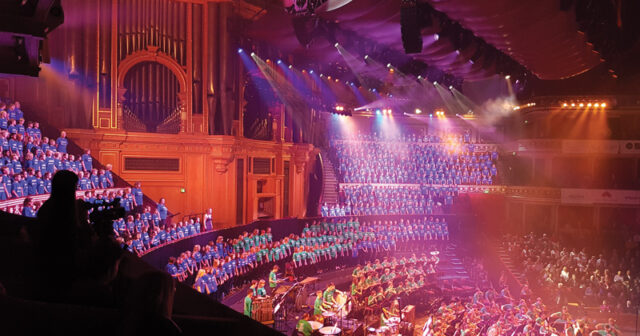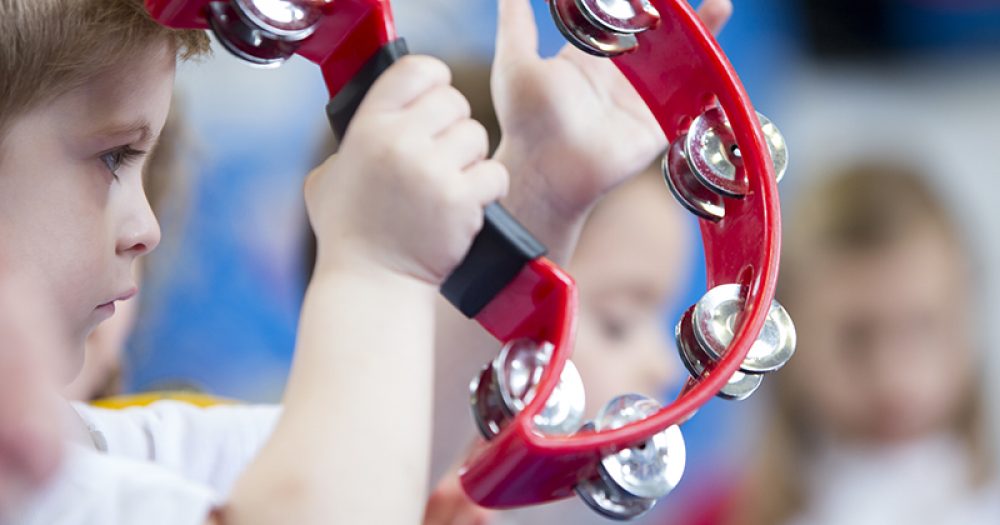Ofsted has warned that simply having music lessons on the timetable “is not enough” and schools need to set ambitious expectations in the subject following its latest research review.
The schools watchdog has published its latest review which focuses on music provision.
It sets out some of the key-principles Ofsted has identified of teaching a “high-quality” music curriculum and follows similar dives into languages, science and geography.
However, the review also acknowledges the difficulties faced in the subject due to falling pupil and staff numbers.
Here are some of the main tips and challenges identified.
1. Simply ‘doing’ music is not enough
 Ofsted found a trajectory of steady decline when reviewing the music curriculum.
Ofsted found a trajectory of steady decline when reviewing the music curriculum.
Primary teachers have been offered “shrinking amounts of musical training”, while key stage 3 provision has been reduced.
Following the release of the review, Ofsted’s chief inspector Amanda Spielman warned: “Music is part of the curriculum but simply ‘doing’ music is not enough. We shouldn’t be satisfied with just having music on the timetable.
“We need to be ambitious about what we expect for music in the classroom and make sure that time is well used.”
She said she hoped the review provided helpful guidance on “designing and developing a high-quality music curriculum”.
2. Leaders should plan for smaller classes
Over the last decade the number of pupils studying music at key stage 4 and 5 had declined, especially among boys, Ofsted found.
Between 2010 and 2019, the uptake of GCSE music among boys fell from 24,000 to 15,500 while the number of girls studying the subject dropped from 21,500 to 19,000.
The number of pupils choosing the subject “implies an average uptake of around two pupils per school”.
The review adds: “It may be helpful for senior leadership teams to know this context and plan for the likely small class sizes at key stage 5.”
3. Remember that ‘sometimes less is more’
Ofsted advises schools that “sometimes less is more”, and a high-quality curriculum should include “content that might be reasonably mastered in the time available”.
The review found primary school pupils receive between 15 to 20 hours of music education each year, while this rises to between 20 and 40 at key stage 3.
It states “overly grand claims of what can be learned in this time will be unfair to teachers and pupils and it will not be possible to include every valuable aspect of music without the curriculum becoming a mile wide and an inch deep”.
4. Provide extensive listening opportunities for pupils
The review advises schools provide extensive listening opportunities to “help develop pupils expressive intentions”.
It explains that a pupils musical performance is dependent on the technical expertise of the performer and pupils’ listening as part of the curriculum “can also enable them to gain a tacit understanding of unfamiliar musical systems”.
5. Use assessment to highlight pupil misconceptions
Assessment should be part of the learning process itself, Ofsted states during the review.
A high-quality curriculum would use summative assessments to check its effectiveness. These assessments should also be used to highlight any  misconceptions pupils may have or missing areas of understanding.
misconceptions pupils may have or missing areas of understanding.
But Ofsted warns that “summative assessment should be infrequent so as not to distort the delivery of the curriculum”.
It adds that formative assessment in music is “far more important than making summative judgements as it helps pupils and teachers understand the learning process better and work out the range of possible next steps”.
6. Music is dependent on flexible support from school
The review acknowledges that “few other subjects are so dependent on flexible support from the school and its systems to flourish”.
This is because a good music department is “often underpinned” by three learning environments: the taught curriculum in the classroom, instrumental and vocal tuition, and musical trips or opportunities (such as singing in assembly).
The problem is that the success of the latter two points “at times either clash with curriculum lessons or are outside normal contact hours”.
















And how will OFSTED ensure the funding of this?